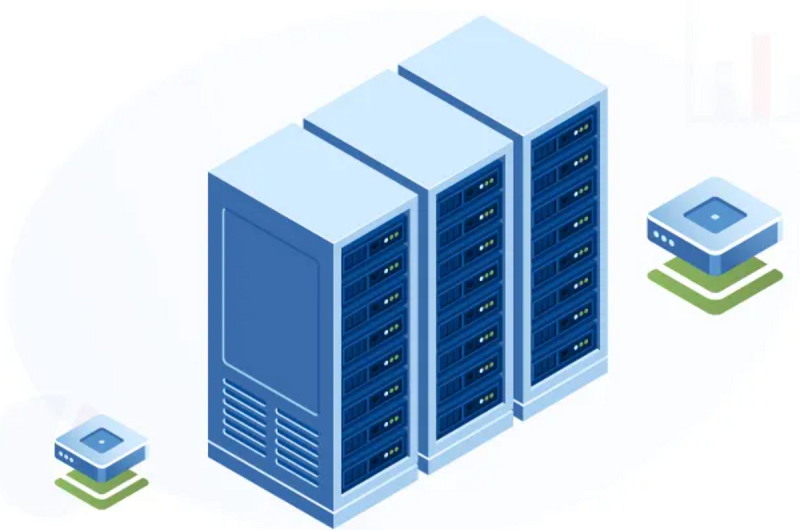In the dynamic world of e-commerce, the backbone of any successful online store is its hosting infrastructure. While many businesses start with shared or cloud hosting, a critical question arises as they scale: when is it time to consider a dedicated physical server? For an online store, this isn’t merely a technical decision; it’s a strategic one that impacts performance, security, and long-term costs. The choice often boils down to a fundamental trade-off: the flexibility and scalability of the cloud versus the raw power and control of a dedicated physical server.
The Cloud Conundrum: A Shared Starting Point
Most online stores begin their journey on cloud-based platforms like Amazon Web Services (AWS), Google Cloud Platform (GCP), or Microsoft Azure. This model is exceptionally popular for its ease of use, pay-as-you-go pricing, and remarkable scalability. A small startup can launch with minimal investment, and as traffic grows, they can easily allocate more resources.
However, this convenience comes at a cost. The “shared” nature of many cloud environments means your store’s performance can be influenced by other users on the same physical hardware. This is known as the “noisy neighbor” problem. While providers have robust mechanisms to mitigate this, it can still lead to inconsistent performance during peak traffic events, such as a Black Friday sale.
Moreover, the cost model of cloud hosting can become a double-edged sword. While it’s cost-effective for low-traffic periods, high-traffic spikes can lead to unexpectedly large bills. For a business with predictable, sustained growth, these variable costs can make financial forecasting difficult.
The Case for a Dedicated Server: Power and Predictability
A dedicated physical server, often rented from a data center, offers an entirely different proposition. You are the sole user of a machine, with 100% of its resources—CPU, RAM, and storage—dedicated to your online store. This is the primary argument for making the switch.
This exclusivity provides several key advantages:
- Peak Performance: Your site’s loading speed and responsiveness are consistently high, regardless of what other companies are doing. This is a crucial factor for user experience and search engine optimization (SEO), as slow websites are penalized by search engines and abandoned by customers.
- Enhanced Security: With a dedicated server, you have full control over the security configurations. There is no risk of a security breach on another hosted website on the same server affecting your site. You can implement custom firewalls, intrusion detection systems, and other security measures tailored to your specific needs.
- Cost Predictability: Rental fees for a physical server are typically fixed monthly or annually. This provides a clear, predictable cost structure, which is invaluable for budgeting as your business matures.
The decision to rent a physical server is often a response to reaching a critical business threshold. A common indicator is when an online store consistently generates over $50,000 in monthly revenue and experiences a steady traffic volume of 200,000 to 500,000 unique visitors per month. At this scale, the accumulated costs of cloud resources, combined with the need for performance reliability, often make a dedicated server the more economical and logical choice.
A Comparative Analysis: Cloud vs. Dedicated Server
To illustrate this, let’s consider a hypothetical online store.
Scenario A: High-Growth Online Store
- Monthly Traffic: 300,000 unique visitors
- Average Page Views per Visitor: 5
- Monthly Page Views: 1,500,000
- Database Queries: 500,000 per day (product listings, order processing, etc.)
Cloud Hosting (e.g., AWS EC2 with RDS)
- Instance Cost: A medium-sized instance (like
m5.xlarge) with sufficient RAM and CPU for this load might cost $200-$350/month. - Database Cost: A managed database service (e.g., AWS RDS
db.r5.large) can add $250-$400/month. - Bandwidth & Data Transfer: Depending on content, this can range from $50-$150/month.
- Content Delivery Network (CDN): For a global audience, a CDN is essential, adding $50-$100/month.
- Total Monthly Cloud Cost (Estimated): $550 – $1,000+
Note: These are baseline costs. Spikes in traffic or database usage can significantly increase this figure, and managing these resources requires dedicated expertise.
Dedicated Server Rental (from a specialized provider)
- Server Specifications: A typical server for this load would include a powerful multi-core CPU (e.g., Intel Xeon), 64GB+ of RAM, and fast SSD storage.
- Rental Cost: A high-end dedicated server with these specs often costs between $400 – $800/month, depending on the provider and location. This fee is typically all-inclusive of power, cooling, and basic network support.
- Software & Management: You would need to manage the operating system, web server (Nginx/Apache), and database (MySQL/PostgreSQL) yourself, or hire an administrator. This adds a variable cost, but it’s a fixed part of a team’s salary.
Conclusion of the Analysis:
| Feature | Cloud Hosting | Dedicated Server |
| Performance | Variable, influenced by “noisy neighbors” | Consistent, maximum performance |
| Cost | Variable, can surge with traffic spikes | Predictable, fixed monthly fee |
| Control | Limited access to underlying hardware | Full control over all hardware/software |
| Scalability | Easy to scale up/down with a few clicks | Requires more planning to upgrade hardware |
| Security | Shared responsibility model, less granular control | Full control over security measures |
Експортувати в Таблиці
The point at which the fixed cost of a dedicated server becomes more economically viable than the variable costs of a cloud solution is a critical inflection point. As shown in the table, when your cloud bill consistently surpasses the monthly fee of a suitable dedicated server, and your performance needs are non-negotiable, the transition becomes a financially sound decision.
The Human Factor: Management and Expertise
It’s crucial to acknowledge the human element in this decision. A dedicated server requires expertise. You or your team must be able to manage the operating system, security updates, software configurations, and troubleshooting. If you lack this in-house expertise, the cost of a dedicated server can be deceptive, as you may need to hire a system administrator or pay for a fully managed service, which adds to the total cost of ownership.
Managed dedicated server providers can bridge this gap. They handle the hardware, network, and basic OS maintenance, freeing you to focus on your business. While this increases the monthly fee, it provides the performance and security benefits of a dedicated server without the full burden of management.
Conclusion
The decision to rent a physical server is not a matter of “if,” but “when.” For a growing online store, it represents a graduation from flexible but potentially inconsistent shared resources to a powerful, predictable, and fully controlled environment.
The necessity of a dedicated server arises when:
- Performance consistency is paramount. When every millisecond of load time directly impacts revenue and customer satisfaction.
- Traffic and revenue reach a significant, stable threshold where the variable costs of cloud computing become less predictable and less cost-effective than a fixed-price server rental.
- Security requirements are stringent, demanding a fully isolated and customizable environment.
By carefully analyzing your traffic patterns, revenue, and in-house technical capabilities, you can determine that critical moment when a physical server is no longer a luxury, but an essential component of your business’s continued growth and stability.






